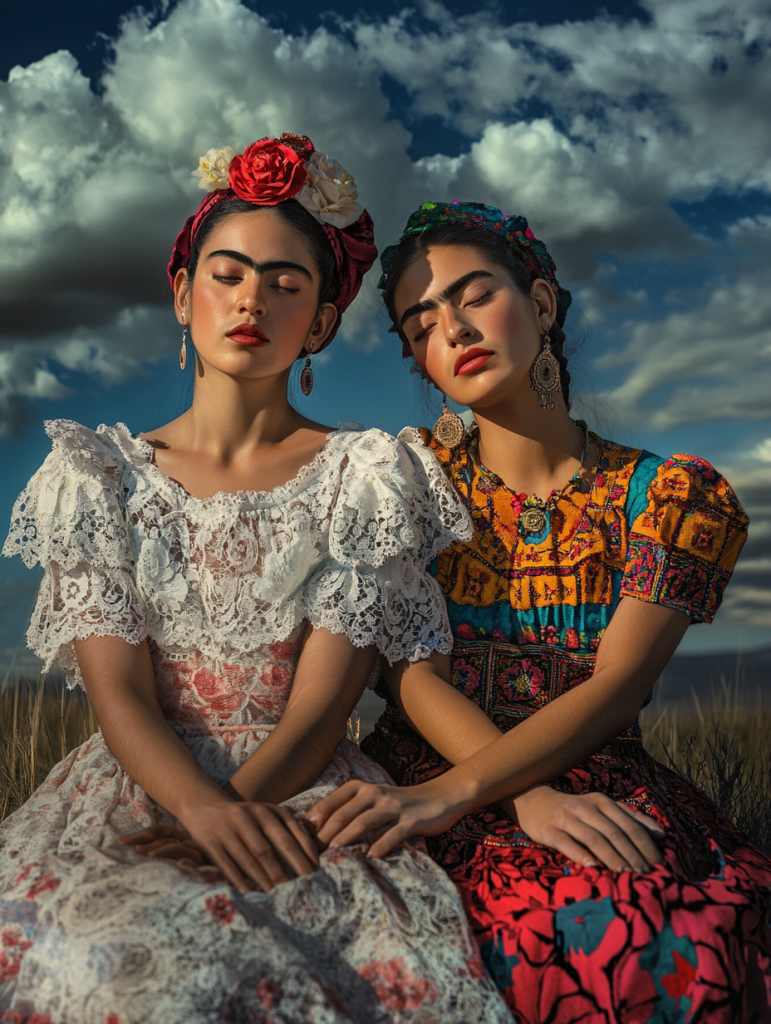
두 명의 프리다 (The Two Fridas), 1939
Two women seated side by side, symbolically connected by their hands and shared emotions, one wearing a traditional European lace dress, the other in a vibrant Tehuana-style outfit, set against a dramatic sky, representing dual identity and emotional depth, inspired by Frida Kahlo, surreal and expressive style, intricate textures, rich colors, and symbolic elements
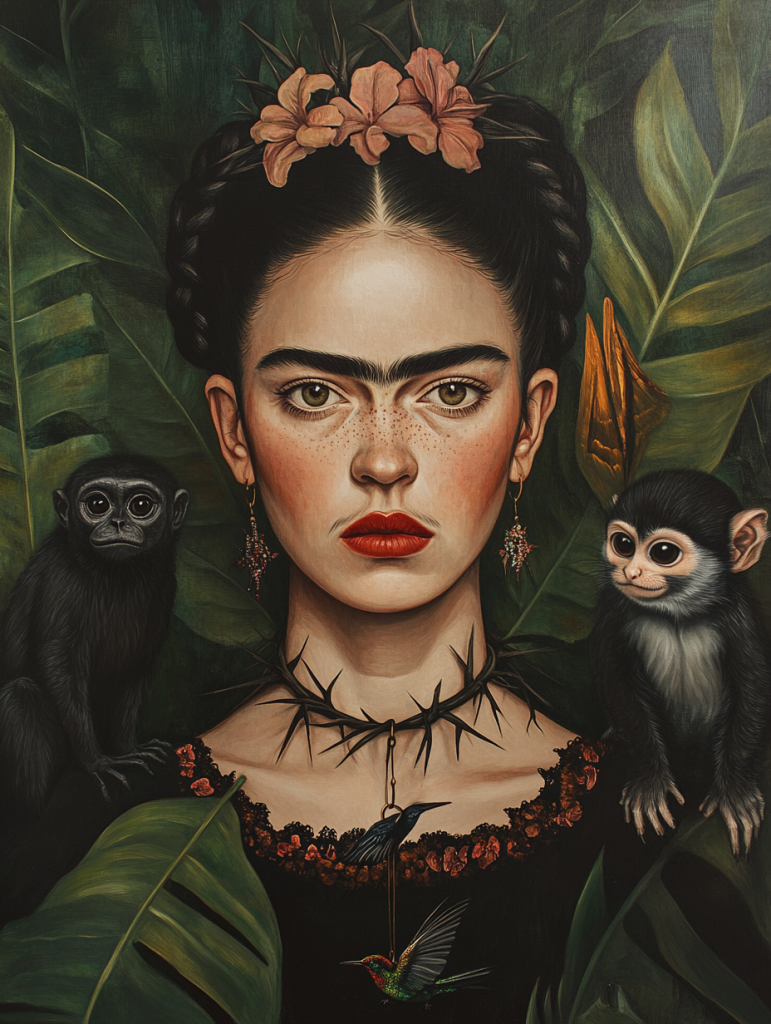
가시 목걸이와 벌새 (Self-Portrait with Thorn Necklace and Hummingbird), 1940
A self-portrait of a woman with a thorn necklace, a dead hummingbird hanging from it, surrounded by lush green leaves, a black cat on her right, and a monkey on her left, expressive and symbolic style, inspired by Frida Kahlo, surreal yet naturalistic details, vibrant colors, and emotional depth, representing pain and resilience
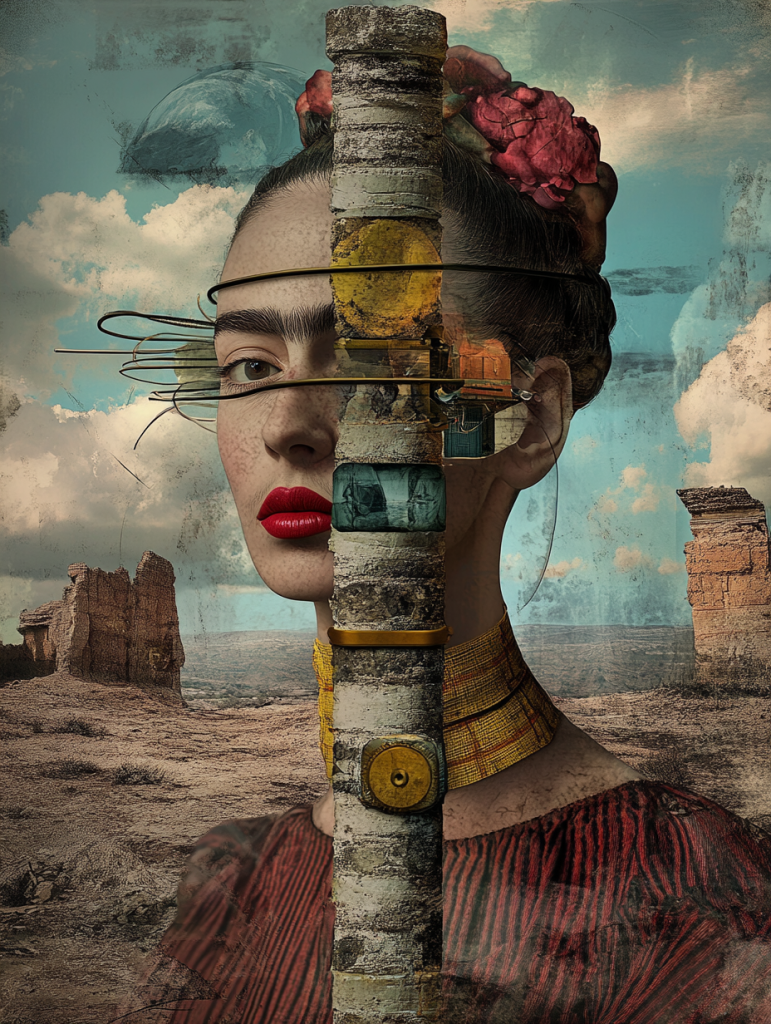
부러진 기둥 (The Broken Column), 1944
A surreal self-portrait of a woman symbolizing resilience and strength, with abstract elements such as a central stone column and supportive medical straps, set against a barren and desolate landscape, inspired by Frida Kahlo, expressive and symbolic style, vibrant yet somber colors, conveying themes of perseverance and emotional depth
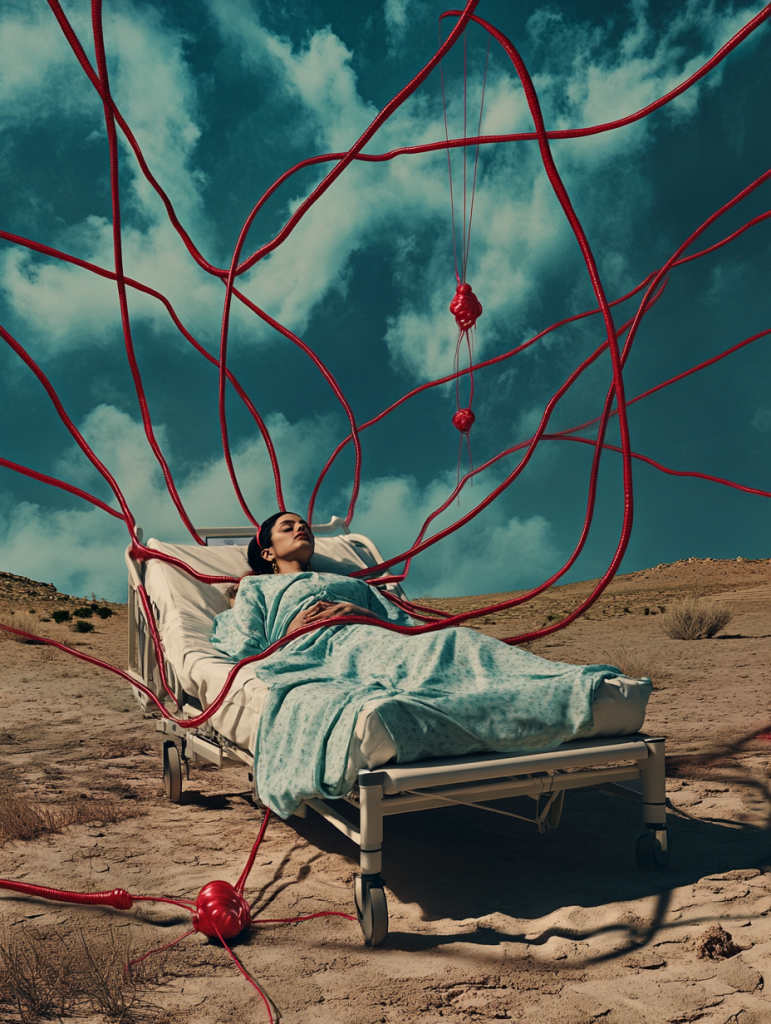
헨리 포드 병원 (Henry Ford Hospital), 1932
A surreal scene of a woman lying on a hospital bed in the middle of a barren landscape, connected to six symbolic objects by red umbilical-like threads, expressing themes of pain, loss, and womanhood, inspired by Frida Kahlo, vibrant yet somber colors, surreal and symbolic elements, detailed and expressive composition, emotional and introspective atmosphere
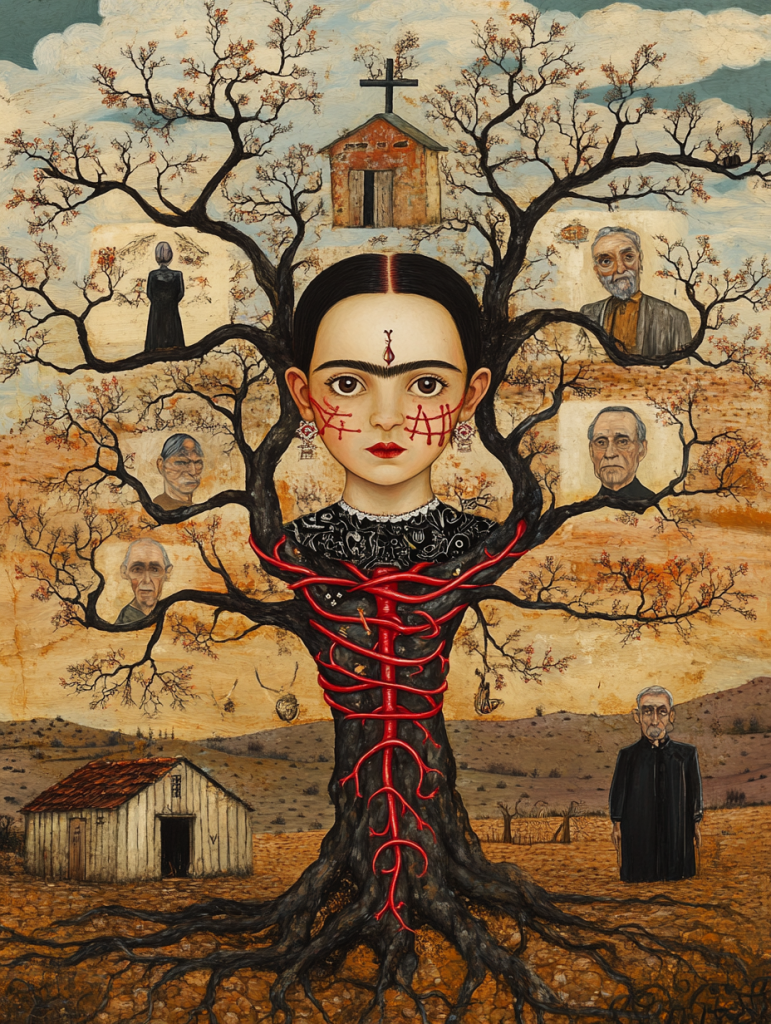
나의 조상들 (My Grandparents, My Parents, and I), 1936
A symbolic family tree featuring a young girl in the center, her parents and grandparents interconnected with red veins, the scene blending surrealism and personal identity, set against a barren landscape and a small house, inspired by Frida Kahlo, vibrant colors, symbolic and introspective elements, detailed and narrative composition

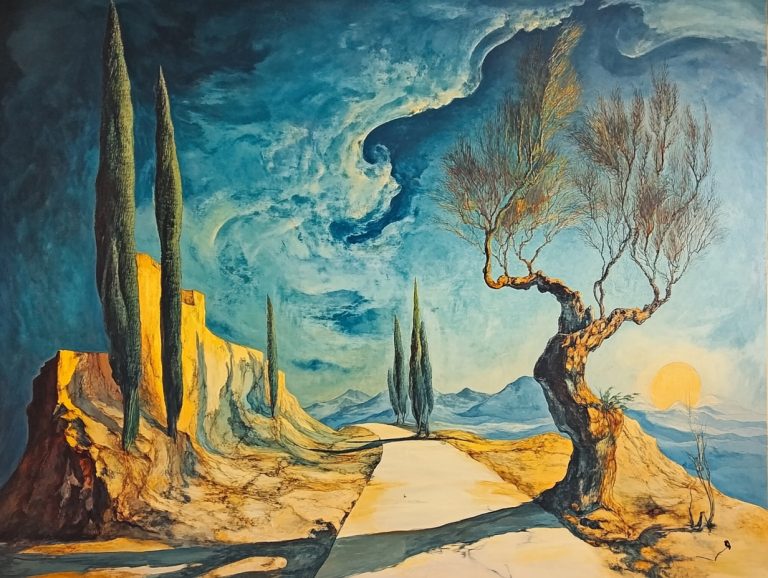
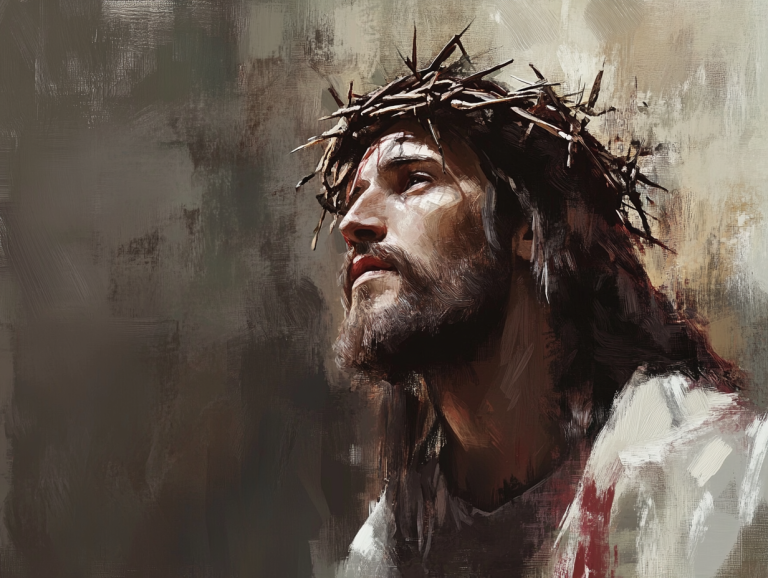
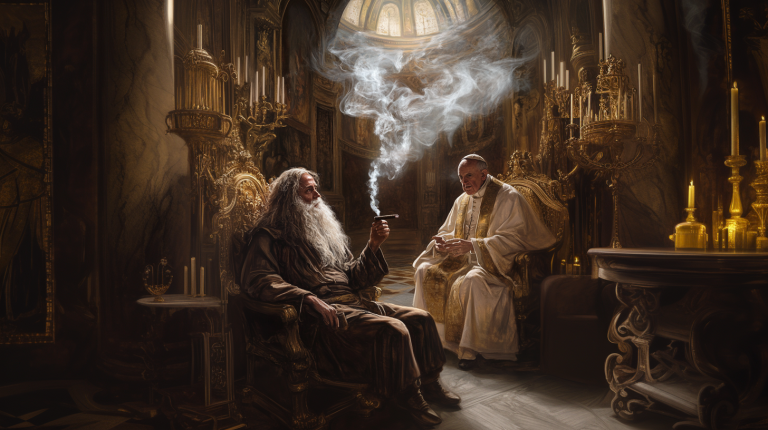
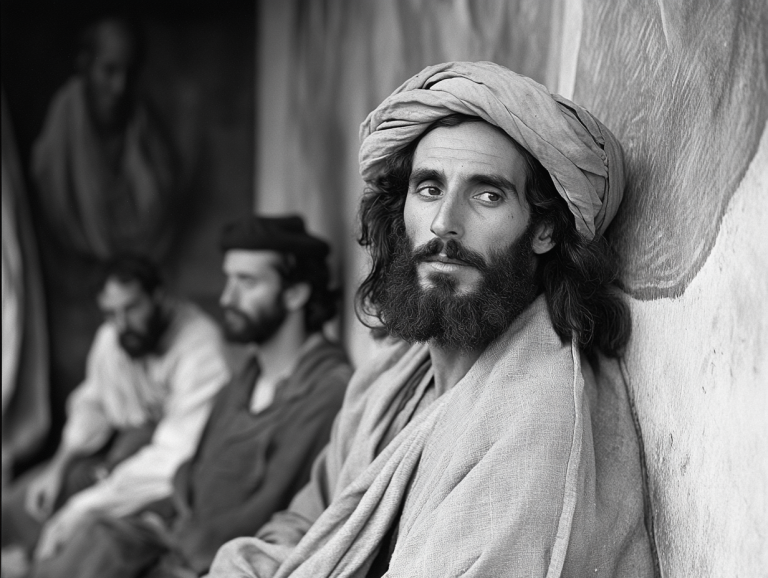
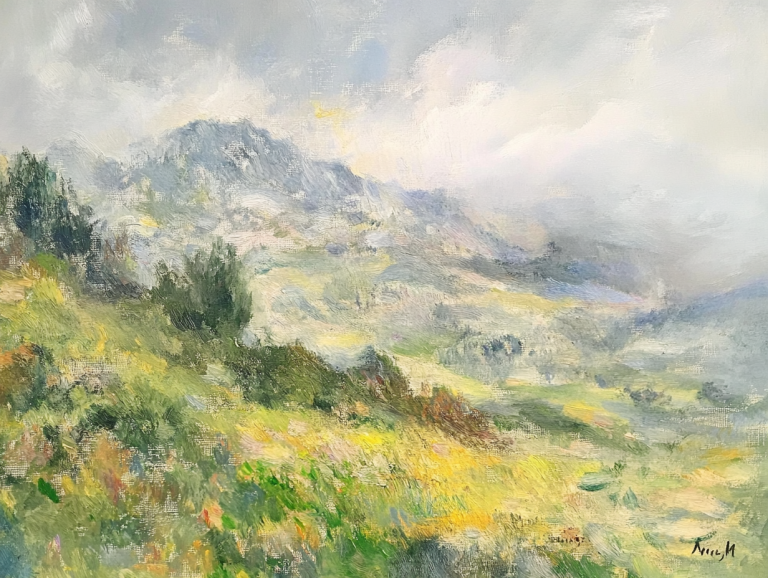
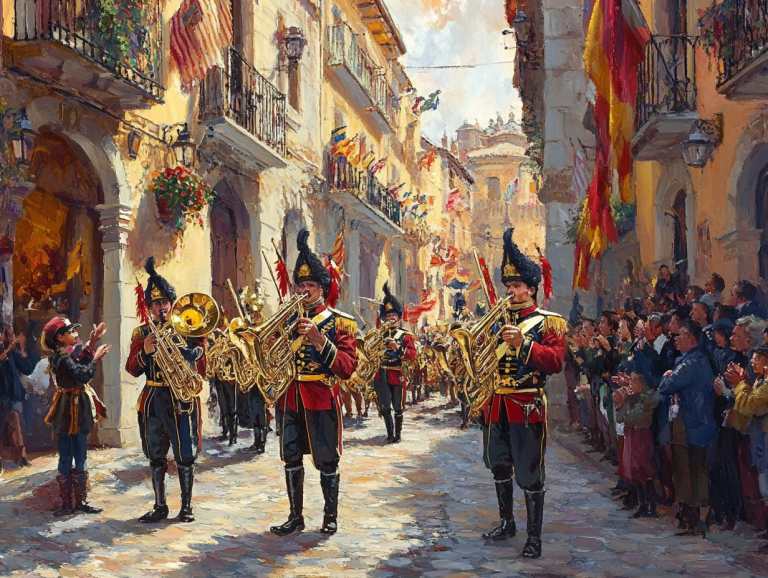
내가 모는 예술가가 넘치는군요.
흥미롭게 보는중입니다. 고맙습니다.
감사합니다!